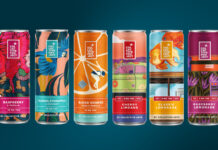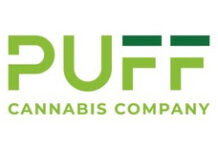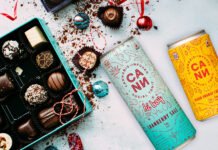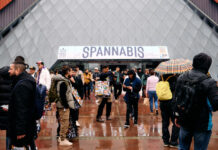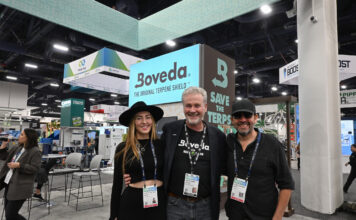Binske co-founder and Executive Vice President Alex Pasternack recently returned from the jungles of Peru, where he visited the out-of-the-ordinary farm from which his company sources the cacao beans used to make its chocolate bars. He wanted to bundle up the entire team and take them for a visit, too. He’s that in love with the place.
According to Pasternack, seeing the plantation on an episode of the late Anthony Bourdain’s No Reservations was a stroke of good luck. Purportedly, the farm is the only one in the world still harvesting the once-thought-extinct Pure Nacional species, considered the world’s finest—and rarest—cacao. After roasting, the beans produce an intense chocolate aroma and mellow richness. Alex and his brother, co-founder and Chief Executive Officer Jake Pasternack, signed an exclusive deal with the farm’s owner, making Binske the only cannabis chocolatier in the world to use the hand-picked, organic, fair-trade chocolate.
“This was key to getting Binske off the ground and into shops,” Alex said. “When we first presented [our products] to retail buyers before sourcing from [the cacao plantation’s owner], we were told the chocolate market was saturated. After we started using the Pure Nacional cacao, that changed.”
Since then, the award-winning brand has grown steadily. The brothers divvy up responsibilities: Jake oversees branding, financing, and genetics, and Alex handles business development and partnerships.
Like many others in the industry, the brothers’ business grew from a personal connection with the plant: Both were diagnosed with ADD/ADHD. “We both found cannabis could help us, and that is something we share,” Alex said, remarking that in most other respects they are polar opposites.
Jake is a flower gastronome—a sort of “cannabis sommelier.” The brothers feel Jake’s well-defined plant genetics alloyed with carefully sourced ingredients are what set their products apart in the high-end retail space. They both understand the importance of the customer experience. “That’s what really drives us,” Alex said. Before any new undertaking, they ask themselves, “How is this improving the cannabis experience?” Hence the brand’s tagline: “The highest standards didn’t exist, so we created them.”
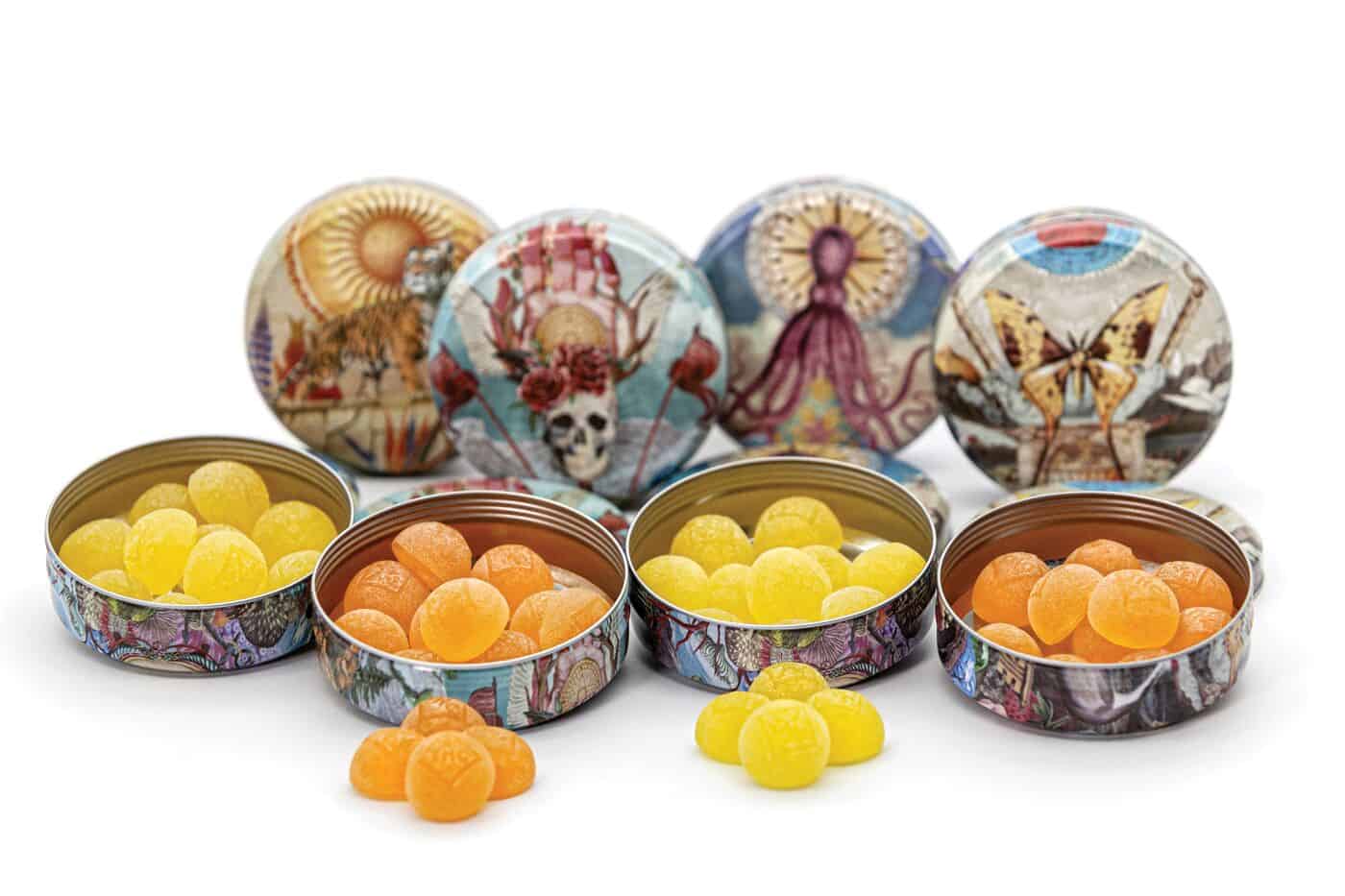
Binske’s packaging is unusual in the high-end market: vibrant, artistic, with hints of Grateful Dead imagery among mystical sunscapes, seascapes, and moonscapes populated with butterflies, octopi, and tigers. The level of detail is enchanting. Originally, the brothers planned to open a cannabis retail location in Aspen and wanted an eye-catching mural for the windows. They commissioned an artist from the United Kingdom to create a series of collages with earth, wind, fire, and water themes; those became packaging designs. “We had no idea what was going to take place,” Alex said. “The iconic series transformed the brand. The packaging engages the eye, and the product engages the rest of the senses. It’s multisensory and immersive. Every time I look at the packaging, I see something different.”
The company’s name owes a debt to whimsy. “Binske” evolved along a winding route of brotherly wordplay, from “doobie” to “dubinsky” to the shortened form “binsky” and finally to Binske, which is pronounced with a silent E. “When we decided to create a cannabis brand, we wanted to embody a sense of innocence and intimacy of shared moments,” Alex said. “Today, the brand Binske aims to redefine cannabis through the plants and ingredients that are cherished throughout the entire process, because we know every moment deserves to be singularly savored.”
The product line is uncommonly broad, boasting flower, tinctures, vape pens, pate de fruit, live resin, fruit leather, granola, olive oil, chocolate bars, massage oils, bath salts, salves, and honey. The latter is crafted by a heritage apiarist, exemplifying the brand’s farm-to-table ethos and its determination to offer products made from artisanal ingredients from all over the world. “Binske represents a complexity of flavors and sensations with every bite, sip, or hit,” Alex said. “In order to select optimum ingredients, it is essential to understand where, how, and when such ingredients are harvested. At the end of the day, it’s the quality of the raw ingredients that sets us apart. We were the pioneers that started using some of the finest raw ingredients in the world imbued with cannabis, and we want to keep it that way.”
With that in mind, he and Jake have invested considerable time visiting their suppliers worldwide.
Vapes are the company’s best seller, followed closely by pre-rolls and concentrates. “This is because people can immediately taste the difference in our plant genetics,” Alex said. Jake created the strains to be a multisensory experience: taste, aroma, and what he calls “oomph.” “Time and again, people tell us once they have one of our flower or concentrate products, they don’t want anything else,” Alex said.
Binske’s original grow, lab, and manufacturing facilities are in Colorado, but the three-year-old company is expanding to multiple states through a series of partnerships with local experts. “We like this model [instead of building from the ground up] because we can collaborate with some of the amazing operators that are out there instead of having to compete with them,” he said. “We now have signed four licensing deals, and some of our operators are publicly traded.”
Now on shelves in Nevada and Colorado, the company plans a Florida debut in the fall, led by Binske’s 100-percent estate-produced olive oil, which Alex said will be the first edible product available in the state. For the Pasternack brothers, however, the big prize is California, where they plan a September launch of the entire line. Despite the competition, they’re bullish on the Golden State because edibles and vapes are a huge market segment. They believe consumers will embrace the original chocolate bars, in particular, in single-source flavors like Honduran Oro Maya with raspberries, Pure Nacional with hazelnuts, and Honduran Oro Maya with sea salt. A 2017 Leafly award for Edible Brand of the Year indicates their assumption may be accurate. “As our fan bases in Nevada and Colorado continue to become more passionate about the brand, we see significant growth opportunities there, too,” Alex said.
Though the licensing route is working well for them so far, the model is not without its challenges. Alex said Binske has been fortunate to find solid partners but had to turn down opportunities in 2018 because the brothers are self-admitted sticklers for detail. Alex said they consider partnership a marriage and undertake a lengthy courtship before signing on the dotted line. “We don’t make our money until our partner makes their money,” he said. “Our team is inextricably tied together with our partners. Our [chief marketing officer] talks to our partner CMOs weekly, our [chief financial officer] with theirs, sales team to sales team, etc. We will not see revenue until our partner has success with our brand, so finding the right partners is crucial.” Binske aspires to wedded bliss in ten states by the end of the year, which would give the company one of the largest footprints in the United States.


